The first debate between presidential candidates Masoud Pezeshkian and Saeed Jalili went live on state TV Monday evening.
Pezeshkian and Jalili, who secured approximately ten million votes each in the first round, faced off in a televised debate that touched on several contentious topics.
The debate's significance was amplified by criticisms from Pezeshkian regarding policies determined by Supreme Leader Ali Khamenei.
He targeted various aspects of the Islamic Republic's governance, including foreign policy, the handling of public demonstrations, and internet censorship.
A notable moment came when Pezeshkian addressed the role of leadership in decision-making processes.
He stated, "The head of the Supreme Security Council is the president and the decision is ultimately taken by the leadership."
A significant portion of this debate focused on the candidates' views on the 2015 nuclear deal, the Financial Action Task Force (FATF), and foreign policy.
Pezeshkian said: "They say the nuclear deal has flaws, but Netanyahu killed himself to not let it be implemented and also many inside the country."
Saeed Jalili is an opponent of the deal.
During the first round of debates, Mustafa Pourmohammadi highlighted Jalili's active role in opposing Iran's joining the FATF, stating that Jalili did not want this achieved during Hassan Rouhani's administration.
Pezeshkian discussed the consequences of FATF and the nuclear deal, saying: "How much do we lose due to FATF and the deal? Maybe 10,000 billion per day.
"We sell 30 per cent cheaper and buy expensive. Some people also bypass sanctions, while we remain in the dark. Lack of transparency leads to disaster for the people."
Jalili countered, claiming Rouhani's government signed all 41 FATF clauses.
He said: "Not all countries implement every clause, but you implemented them all. Yet, FATF still does not accept them, and demands more."
He argued that Iran is a "creditor" concerning the nuclear deal and FATF, emphasizing: "The [IAEA] agency confirmed 15 times that we met our obligations while the other side did not. We should be creditors, and if the deal is to continue, the other side must fulfil its obligations first."
Jalili also stressed that Iran "should not be waiting for three world powers. There are 200 countries."
He proposed turning every embassy into an export platform, developing relations with neighboring countries, and utilizing transit opportunities.
In another segment on foreign policy, the candidates addressed negotiations with the US following the killing of Qasem Soleimani.
Pezeshkian said: "Soleimani was a pester to America in Gaza."
Jalili's supporters considered this an insult to Soleimani and reacted strongly on social media.
The candidates also argued about their plans, accusing each other of lacking a clear strategy.
Jalili claimed to have a comprehensive plan formed over years of a "Shadow Government," but Pezeshkian insisted that no such plan existed and his government would focus on implementing the 7th Development Plan.
Pezeshkian doubted the possibility of achieving 8 per cent economic growth under current conditions, offering to withdraw from the election if Jalili could guarantee such growth.
He added: "I will withdraw if he guarantees 8 per cent growth. If he fails, he should be executed."
At the beginning of his speech, and before addressing the state of participation in the elections, Pezeshkian clarified that, contrary to published reports, he and his colleagues do not intend to increase the price of petrol.
He emphasized, "I will not increase the price of petrol without the consent of the people, and I declare this decisively."
Pezeshkian also denied allegations of insulting Molavi Abdulhamid, Iran's top Sunni cleric.
Pezeshkian criticized Jalili's supporters who labeled him a "hypocrite" at the Shah Abdol-Azim Shrine, expressing concerns about the negative atmosphere surrounding election campaigns.
Jalili arrived at the debate with a collection of social media posts, claiming to have gathered "insults" directed at him.
He mentioned being called Taliban by his rival's supporters, arguing that such words do not address the "problems of the people."
In response to a question about voter participation, Jalili praised the conduct of elections in the Islamic Republic but did not outline his program.
He said that the process should strive for an "optimal situation" and emphasized the need for planning, suggesting that leveraging "existing talents and platforms" is crucial for achieving results.
Pezeshkian, on the other hand, expressed concern over voter turnout, saying, "The participation that took place is worrying. It is not acceptable that 60 per cent of people do not come to the polls."
He attributed this to the exclusion of certain segments of the population, which, according to him, discourages them from voting.
During the debate, Pezeshkian criticized the arrest and repression of protesters, saying: "In the 13th government, many students who wanted to protest were suspended, and professors were retired and fired," referring to Ebrahim Raisi's administration.
"When we suppress dissent in universities and society, we expel anyone who wants to speak. On the other hand, we say people should come and speak.
"If people agree with us, they have the right to protest, but if they oppose our performance, it is considered illegal. We arrest them, imprison them, and then put them on trial for disrupting the country's affairs."
In response, Saeed Jalili said, "Protest is not just about coming to the streets."
He claimed, "We need to create dialogue spaces, go to universities, talk to students, and listen to their concerns. These discussions should also include workers."
When the host asked both candidates about their approach to "popular protests in accordance with the constitution," neither gave a clear answer.
Both agreed that until the protest reaches the streets, the protesters' voices should be heard and their issues addressed.
Regarding the "right to freely access the Internet," both candidates shared a similar stance.
Pezeshkian said, "There are restrictions worldwide, but if there is no issue, we should not impose filters on people."
Both emphasized the need for foreign platforms (messaging and social networks) to operate responsibly and suggested that these platforms should have representative offices within Iran.
The second round of Iran's presidential election will be held on Friday to determine the successor to Ebrahim Raisi.
The first round saw less than forty per cent voter participation.











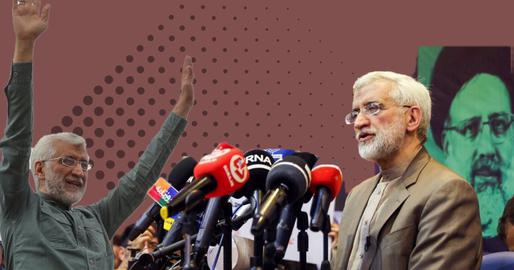
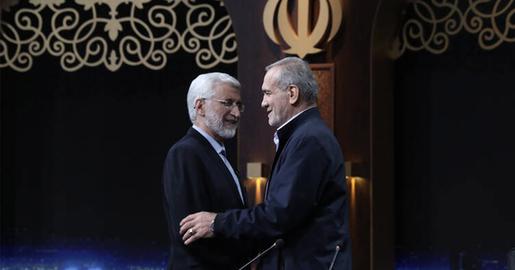
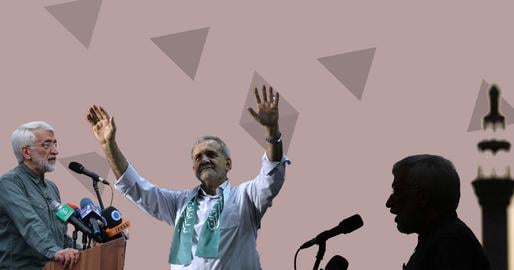
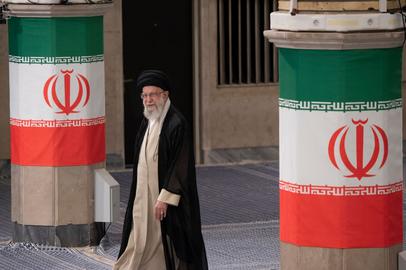

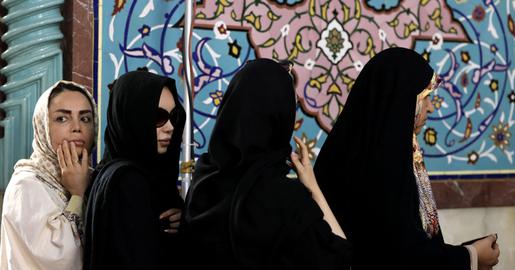


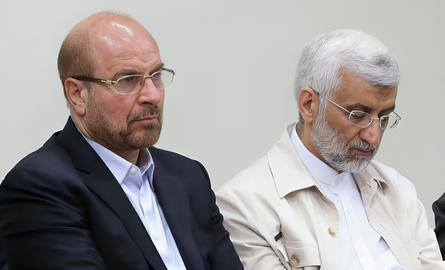




comments